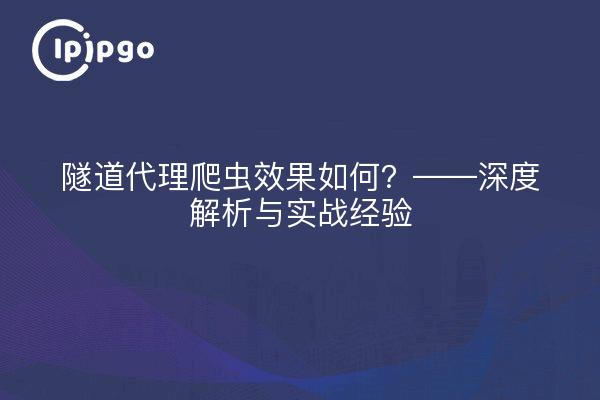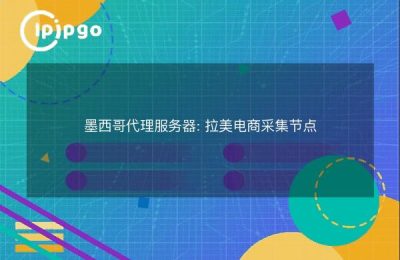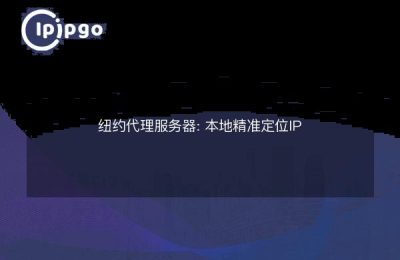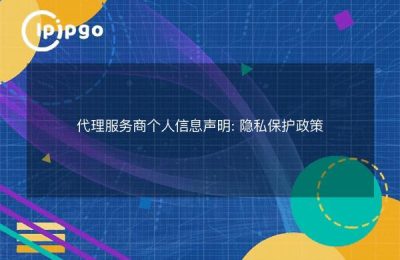
In the era of big data, web crawlers have become an important tool for obtaining information. And tunneling proxy, as a special kind of proxy, is more and more often used in crawling tasks. In this paper, we will discuss in detail the effect of tunneling proxy in crawling, analyze its advantages and challenges, and share some real-world experiences.
What is a tunnel agent?
Tunneling proxy, also known as dynamic proxy, is a technology that constantly changes IP addresses through a proxy server. Unlike traditional static proxies, tunnel proxies can switch IPs frequently within a short period of time, thus effectively avoiding the risk of IP blocking.
Simply put, a tunneling proxy is like a constantly changing "tunnel" through which a crawler accesses a target website and may use a different IP address for each request. This approach not only improves the stealth of the crawler, but also improves the efficiency of data collection.
Advantages of Tunnel Proxy Crawlers
Tunneling agents have several significant advantages in crawling tasks:
1. Avoiding IP blocking
Traditional static proxies are easy to be recognized and blocked by the target website when there are a large number of requests. Tunnel proxy can effectively avoid this problem due to frequent IP address changes. Using a new IP for each request greatly reduces the risk of being blocked.
2. Improving the efficiency of data collection
The dynamic nature of tunneling proxies allows crawlers to initiate multiple requests at the same time without worrying about IP blocking. This concurrent processing capability significantly improves the efficiency of data collection, and is especially suitable for tasks that require large amounts of data.
3. Improving the stealthiness of crawlers
Frequent IP address changes make it difficult for crawlers to be recognized and tracked by target websites. Tunneling proxy improves the stealthiness of the crawler and reduces the probability of being detected by simulating the access behavior of different users.
The Challenge of Tunnel Proxy Crawlers
While tunneling agents have many advantages in crawling tasks, they also face some challenges:
1. Higher costs
Tunnel proxy services are usually more expensive than static proxies. Tunnel proxies are more expensive to maintain due to the need for frequent IP address changes. For projects with limited budgets, there may be a trade-off between cost and effectiveness.
2. Connection stability
The Tunnel Proxy may experience connection instability when changing IPs frequently. This instability may cause some of the requests to fail, thus affecting the completeness and accuracy of data collection.
3. Speed fluctuations
Due to the constantly changing IP address of the tunneling proxy, the network speed may vary from one IP to another. This speed fluctuation may affect the overall performance of the crawler program and requires reasonable tuning.
Tunnel Proxy Crawler's Practical Experience Sharing
In practice, how to make full use of the tunneling agent to improve the effect of crawling? Here are some real-world experiences:
1. Reasonable request intervals
Although the tunneling proxy can change IP frequently, it is still necessary to set the request interval reasonably to avoid too frequent requests causing the target website to take countermeasures. Appropriate request intervals not only protect the proxy IP, but also improve the stability of data collection.
2. Selection of high-quality tunnel agency services
The quality of tunnel proxy services on the market varies, and it is crucial to choose a high-quality service provider. High-quality tunnel proxies not only provide more stable connections and faster responses, but also reduce the risk of blocking due to IP quality issues.
3. Real-time monitoring and adjustment
Crawling tasks require real-time monitoring to identify and solve problems in a timely manner. By monitoring the success rate of requests, response time and other indicators, you can adjust the crawler strategy and agent settings in time to ensure the smooth progress of data collection.
4. Use of multithreading and asynchronous processing
The dynamic nature of the tunnel proxy lends itself to being combined with multi-threading and asynchronous processing. Through concurrent processing, the proxy IP resources can be maximized and the data collection efficiency can be improved. Meanwhile, asynchronous processing can avoid single-thread blocking and improve the overall performance of the crawler program.
summarize
Tunneling proxy, as an efficient proxy method, has significant advantages in crawling tasks. It avoids the risk of IP blocking by frequently changing IP addresses, and improves the efficiency and stealthiness of data collection. However, tunneling proxies also face challenges such as higher cost, connection stability and speed fluctuation.
By reasonably setting the request interval, choosing a high-quality tunneling proxy service, real-time monitoring and adjustment, and using multi-threading and asynchronous processing, you can give full play to the advantages of tunneling proxies and improve the effect of crawling. We hope that the introduction and practical experience shared in this article can provide useful reference and help for your crawling tasks.








